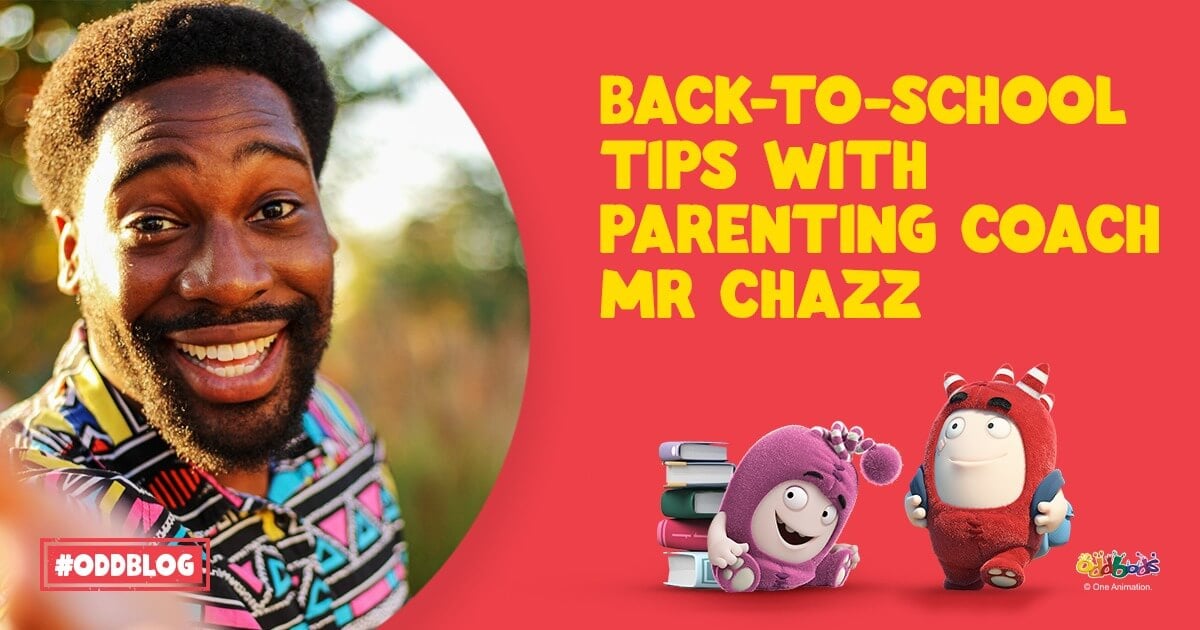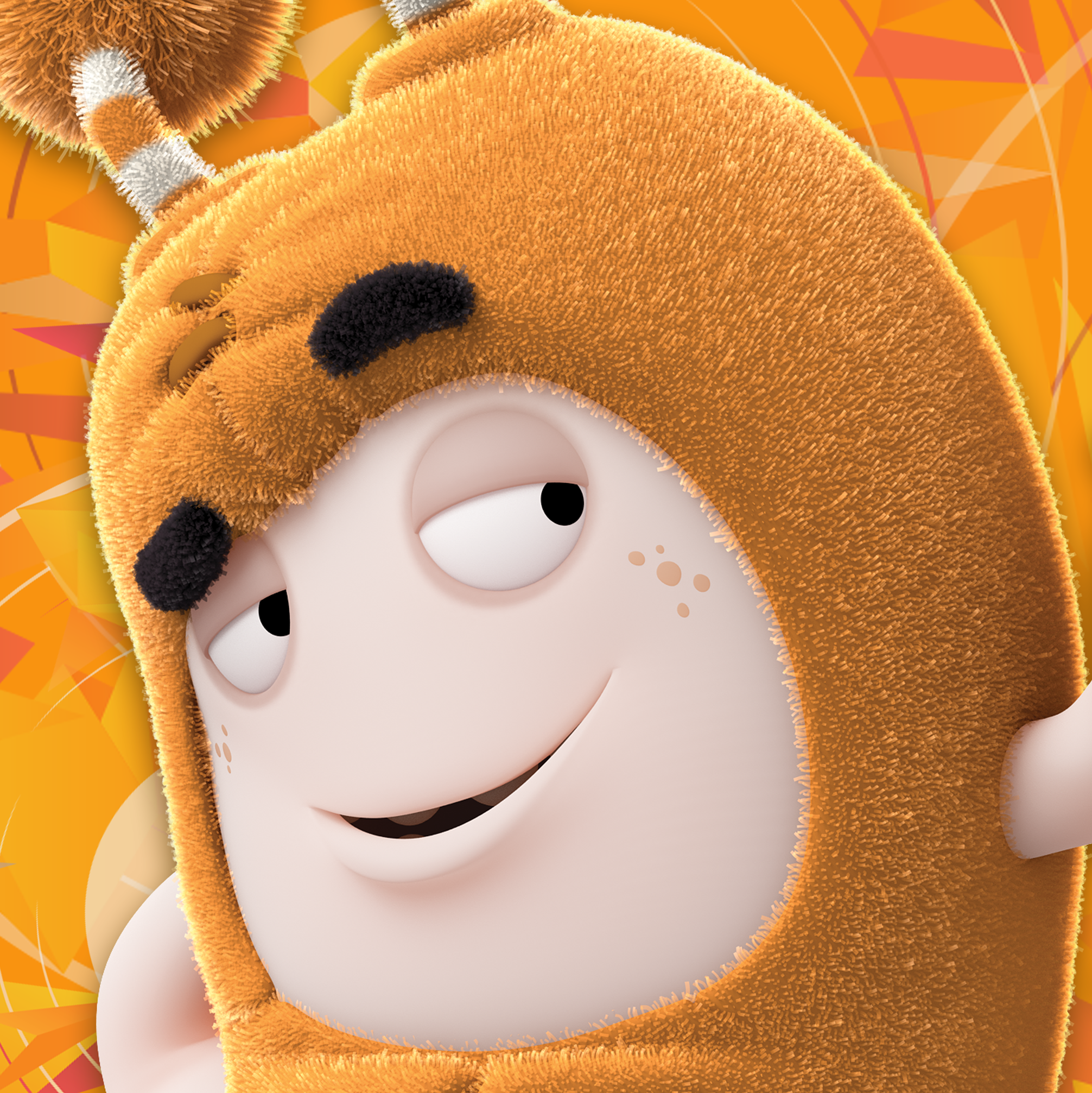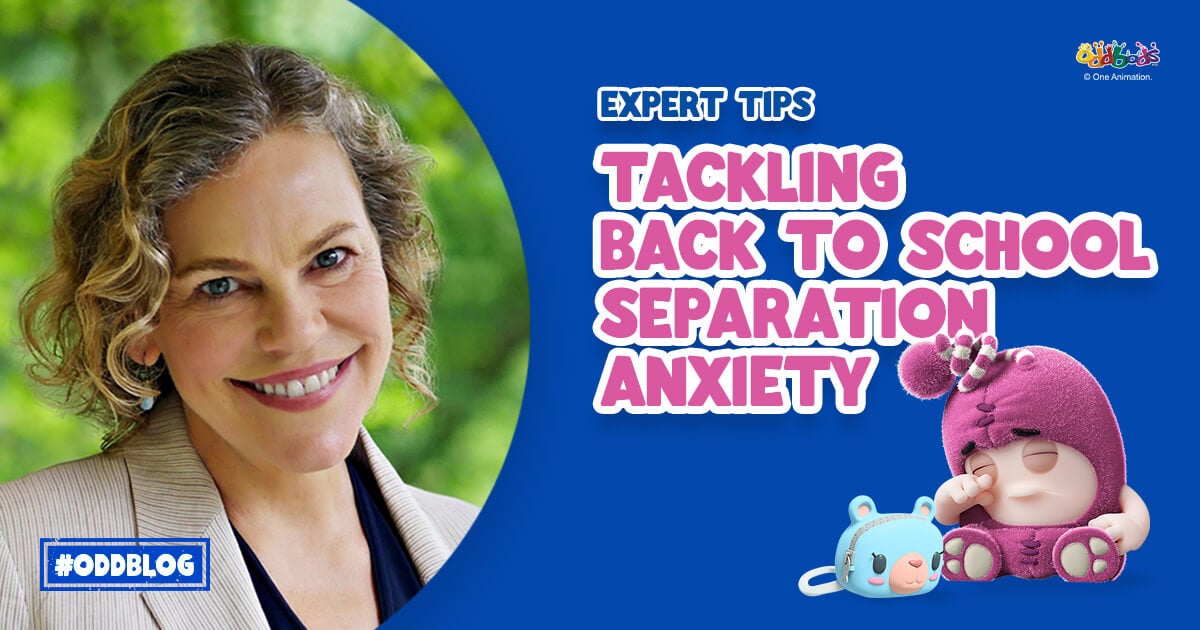As summer comes to an end, the back-to-school season whizzes into view quicker than many of us probably expected! During this busy period of change and new routines, it’s normal for parents and kids to feel excitement mixed with flickers of anxiety and stress.
To help you prepare for back to school, we get some expert advice from Mr. Chazz, a US-based preschool education specialist and now popular influencer on social media. He shares some tips on how parents can manage their kids in a positive, connection-based way.
Oddbods: Hi, Mr. Chazz! Your coaching aims to break generational cycles or patterns of parenting style, beliefs, and attitudes that we have a tendency to pass on from one generation to the next. Can you explain more?
Mr. Chazz: One typical generational cycle is fear- or control-based parenting, for example. This pattern of behaviour relies on fear and control to get children to do X, Y, or Z, and it tends not to be very healthy. I prefer to talk about developing more of a connection- or relationship-based way of parenting by following what I call a “See, Guide, Trust” approach.
To "see" your child means understanding them, their personality, and who they really are. Part of it is appreciating the uniqueness and individual differences of the human being you have in front of you. Truly seeing them as opposed to judging them good and bad. I recommend practising more noticing on the things that they’re doing, what they’re interested in.
To “guide” a child involves telling them what to do instead of what not to do and understanding their underlying needs. For instance, if you don't want them to jump on the couch at home because it’s not safe, tell them to "sit on the couch" instead of "don't jump on the couch". Or, what’s even better and more effective is noticing. Say, “Oh, I see you have a lot of energy and want to move around, so let's go play outside”. In this way, you’re fulfilling the child’s underlying need for physical activity. Children aged five and below need to be active throughout the day, so while they may obey and sit on the couch, their bodies will be screaming at them to jump around and do things. If you don’t notice their need, a few seconds later they’ll be jumping on the furniture again.
Finally, to build “trust” with your child means trusting that they’re really doing their best. Everyone is doing the best they can with the skills and knowledge they have, including parents, teachers and children – all of us!
Many times, we might view a child’s behaviour as “acting out”, but they’re really crying out for help because of an underlying need that they don't know how to meet. An infant will eventually learn how to walk without much of your help. Yes, they will fall and fall and fall again, but that is part of their process. That process doesn't change when they learn other things like solving conflict with a friend, regulating their body, or expressing their emotions. Social and emotional skills involve messing up again and again and again. But messing up doesn't mean that they’re not confident or not trying; it’s just part of their process.
Oddbods: Do you have some parenting tips to prep children for back to school?
Mr. Chazz: Remember, for three- and four-year-olds, because of the pandemic, half of their life hasn’t been in any social setting communicating using words with others. We’ve been giving them this message that other people aren't safe, not just verbally but also non-verbally, in the way we’ve been responding to others. Children are very sensitive to such energy, so be aware of the anxiety this may cause.
Meeting with teachers can be helpful if you can arrange it. And when you meet them, your child will probably watch closely to see how you interact to see if that person and space is safe. You should communicate verbally and non-verbally with your body language. It can be helpful if you smile and laugh (or even high-five!) to show that you have a connection.
You can draw social stories together [home-made comic strips] where you picture your child in different scenarios such as getting ready for school, driving to school, and being at school. This method helps your child to review the whole process in a fun and reassuring way.
You can also practice school skills like raising your hand to ask the teacher when they need something. It’s sometimes hard when you are in a new environment with all these strangers. A child can be a little scared to ask or not sure if it’s ok to ask. Also, let them know the process if they need to request a drink of water or if they need the bathroom.
Oddbods: Some children respond to back to school with anxiety, but it might not be obvious. How can parents notice if their child is feeling this way?
Mr. Chazz: Anxiety comes out in a variety of different ways in different children. Knowing your child and noticing when they start to do things differently is important. Are they picking their skin or biting their nails, for example, or becoming more fidgety? Look for those kinds of body cues.
But please note that anxiety is not inherently a bad thing – it’s just a signal from our body. Sometimes it could be a good thing to have, for instance, if it makes you feel uncomfortable about an unsafe situation that you should avoid. We just need to learn how to listen to it, pay attention to it and not necessarily overreact.
Anxiety is caused by a fear of what might happen. With back to school, there are so many unknowns for kids it makes sense to have some anxiety in this kind of situation. Try to give your child more power and knowledge about what will happen. Also, let them know that it’s ok to feel anxious and that it’s normal to be a little scared not knowing people and meeting new friends. Validate, rather than dismiss, their feelings.
You want them to pay attention to the signals in their body. Hence, they’re conscious of the anxiety, and they can regulate it and have more control over what they are doing. They have the power to achieve this, but it is difficult, and it’s a skill to practice both for adults and children.
Now, I’ll come back again to the "see" part. You want your child to see that you’re noticing and that you’re there to support them. They should go out, try things and make mistakes, and if they get hurt, you are there for them. You are not judging; you’re just their safety net.
Oddbods: That all makes so much sense. Thank you for sharing such valuable and reassuring advice, Mr Chazz!
Chazz Lewis, aka “Mr Chazz” on TikTok, is an education specialist based in Virginia, USA. During the pandemic, he started using TikTok to engage with teachers and parents stuck indoors looking for guidance. His highly engaging and relatable style quickly gained him thousands of fans. @mrchazzmrchazz






